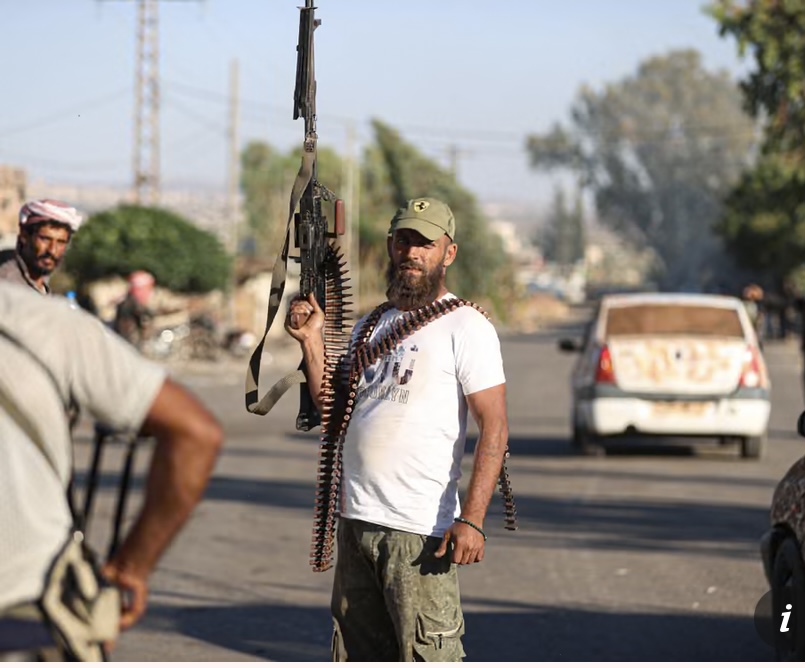Fighting between Bedouin tribes and Druze militias has continued in Syria’s southern province of Sweida, defying a government-ordered ceasefire amid escalating violence that has left over 900 people dead since last Sunday.
The Syrian presidency had earlier announced an “immediate and comprehensive” ceasefire, deploying internal security forces in the largely Druze region to quell nearly a week of intense clashes. However, gunfights resumed despite the move, raising questions about the government’s control and the effectiveness of the truce.
Tensions Escalate Following Army Withdrawal
The latest escalation was triggered on Friday after government forces withdrew from the area under pressure from Israeli airstrikes and international diplomacy. President Ahmed al-Sharaa, in a televised address on Saturday, blamed Druze fighters for violating the ceasefire by carrying out retaliatory attacks against Bedouin communities. He also accused Israel of deepening the crisis through military intervention, describing the situation as a “dangerous phase.”
Despite official claims by the interior ministry that the city of Sweida had been cleared of Bedouin fighters, AFP correspondents reported continued clashes in the provincial capital. Druze forces claimed that many of the reinforcements aiding the Bedouin were Islamist fighters from outside the region.
International Appeals and Diplomatic Efforts
France and the U.S. have called for immediate adherence to the ceasefire. U.S. special envoy Thomas Barrack announced that Israel and Syria had agreed to the truce, with backing from Turkey and Jordan. Barrack urged all ethnic and religious groups — Druze, Bedouin, and Sunni — to disarm and unite under a peaceful Syrian identity.
Secretary of State Marco Rubio echoed this call and warned Syrian authorities to prevent jihadists from exploiting the conflict. He emphasized accountability for any atrocities committed, including by government forces.
Humanitarian Crisis Deepens
The violence has taken a severe toll on civilians in Sweida. The Syrian Observatory for Human Rights (SOHR) reported at least 940 deaths and widespread destruction. The local health system has collapsed, with all hospitals non-functional and rampant looting reported. Medical personnel described horrific conditions, including rotting corpses due to power outages and lack of morgue capacity.
The UN and International Committee of the Red Cross (ICRC) described the humanitarian situation as “catastrophic,” with shortages of food, medicine, and basic services. Communication lines have been severed, and many neighborhoods lack water and electricity.
Origins of the Conflict and Government Miscalculations
The fighting reportedly began after a Druze vegetable merchant was kidnapped by Bedouin tribesmen, triggering tit-for-tat abductions. Although the government deployed troops to intervene, reports suggest the army sided with the Bedouins and was implicated in a massacre of 19 Druze civilians in Sahwat al-Balatah.
President Sharaa later ordered the military withdrawal, citing a desire to prevent broader conflict with Israel and vowing to let local Druze groups maintain security. But clashes reignited shortly afterward, with Druze factions attacking Bedouin villages in revenge.
Political Ramifications and Minority Rights
Sharaa reiterated his commitment to protecting Syria’s minorities, praising U.S. support during this crisis. However, Israel remains skeptical, citing ongoing persecution of minorities such as Alawites, Kurds, and Christians under Sharaa’s interim leadership.
Critics argue that the government’s reliance on military force and failure to include minority groups meaningfully in political processes has deepened sectarian divisions. “This is the same failed approach Bashar Assad used,” said Bassam Alahmad of Syrians for Truth and Justice.
Others worry that the government’s withdrawal from Sweida might encourage other groups to seek autonomy, potentially fracturing the country further. “If Sweida gets self-rule, everyone else will want the same,” warned Abdel Hakim al-Masri, a former opposition official.



